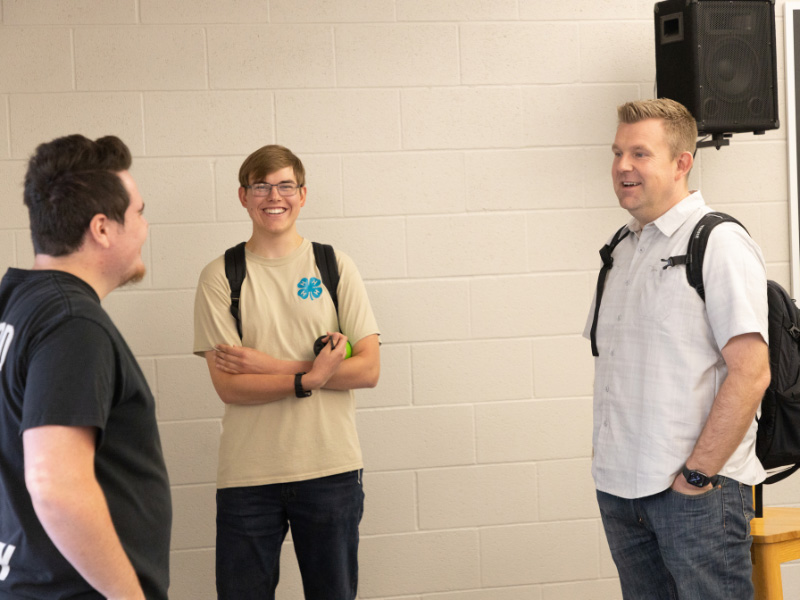
Everyone has a worldview. There are no exceptions to this. Each views their own experience through a lens. The narratives and propositional inputs that define our human existence are filtered through a series of presuppositions and beliefs that govern our reaction to them.
James Sire in his book The Universe Next Door defines worldview as a “fundamental orientation of the heart” which “provides the foundation on which we live and move and have our being.”* Sire is correct when he says that our worldview is essential to who we are, and it dictates our behavior. It follows, then, that something this consequential should be well-examined, well-reasoned, and ready to be articulated. Despite this, many people possess an unexamined worldview.
This can be disastrous, especially for Christians. Take, for instance, the Christian teenager. Many teens raised in the Christian faith lose that faith in college. Many times, this is because these teens have never really examined their faith. They have not dug deeply into why they believe what they do. They take older family and leaders at their word, they learn to parrot certain sayings and rituals, but when challenged on these things in the collegiate setting they cannot give an answer for what they believe or why they believe it (see 1 Pet. 3:15). The resulting deconstruction of their faith often shocks their devout parents, but it shouldn’t. A worldview unexamined is a worldview quickly abandoned.
A worldview unexamined is a worldview quickly abandoned.
So how does one examine their worldview? There are a variety programs and methods of worldview study, from philosophy courses to worldview academies, but most of these programs center on seeking answers to life’s big questions. It doesn’t matter where a person is from or what religion they practice. “Consciously or subconsciously, consistently or inconsistently,”** they are answering the same categories of questions. While these categories differ between authors, they can generally be summarized by these four questions:***
1. What is our world?
This question explores the overarching question of what this universe and our world is, and how it came it be. Does it have an origin, or is it infinite? Does it possess an order, or is it chaotic? Was it designed or accidental? The worldview student must understand their relationship to this world and its Maker.
2. What is our nature?
This question seeks to discover the essential nature of humanity. Is humanity unique among living things, or is it simply a more evolved form of animal? Is the human merely an organic organism, or does he or she possess a soul? Is he or she a finite creature, or eternal? Worldview students must ask, “who am I,” in relationship to the world around them.
3. What is our problem?
Humans throughout recorded history have recognized that things aren’t as they should be. Natural disasters, famines, wars, sadness, and death are readily perceived by all. Why do those things happen? How did they become part of human existence? Is there a solution to these problems, or are they fatalistic? Worldview students need to examine the most plausible and comprehensive answer to the problems they face.
4. What is our end?
This question seeks to answer, not only where this all leads temporally, but the purpose and function of humanity. Is life something to be lived for oneself, or should altruism play a role in our lives? Where does humanity find its value? Where should it invest its resources? Is there an afterlife to look forward to, or is this all there is? The search for meaning and purpose in life should be the worldview student’s pursuit.
Christians can and must boldly pursue the answers to these questions. They don’t need to fear. When the body of evidence for each question is examined and relevant truth tests are applied, the case for biblical Christianity is a strong one. Christianity makes the best sense of reality. Christians have a worldview worthy of careful examination, and an examined worldview is not easily abandoned.
Rev. Adam Osier serves as Dean of Free Lutheran Bible College, as well as part-time faculty. This semester, he is teaching Intro to Biblical Studies, Effective Communication and Worldview, Kingdom, & Culture. See our course catalogue for more info on what FLBC offers.
*Sire, James. 2020. The Universe Next Door, 6th Ed. Downers Grove, IL: IVP Academic, 5.
**Ibid.
***These questions are summarized from Anderson, Tawa J., W. Michael Clark, and David K. Naugle. 2017. An Introduction to Christian Worldview: Pursuing God’s Perspective in a Pluralistic World. Downers Grove, IL: InterVarsity Press.
Share this Post
